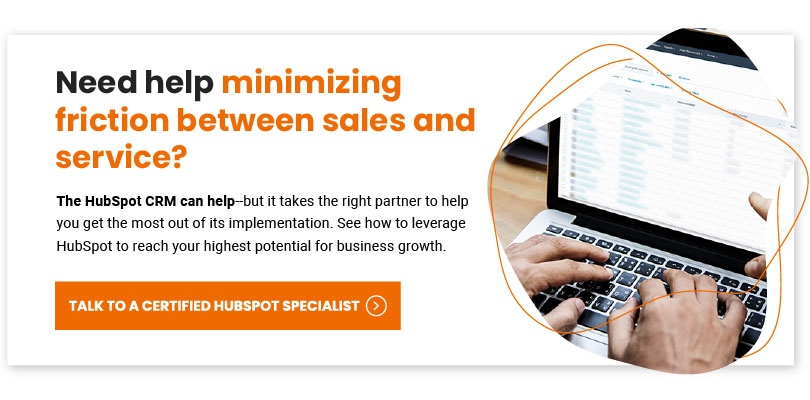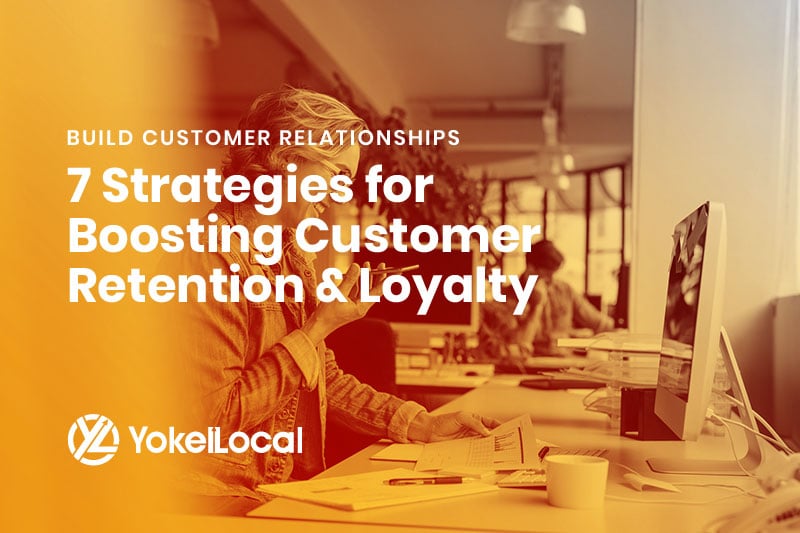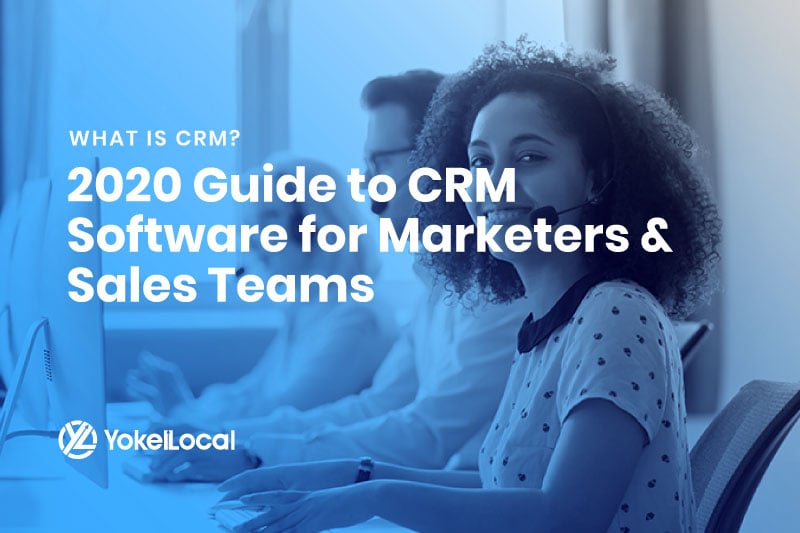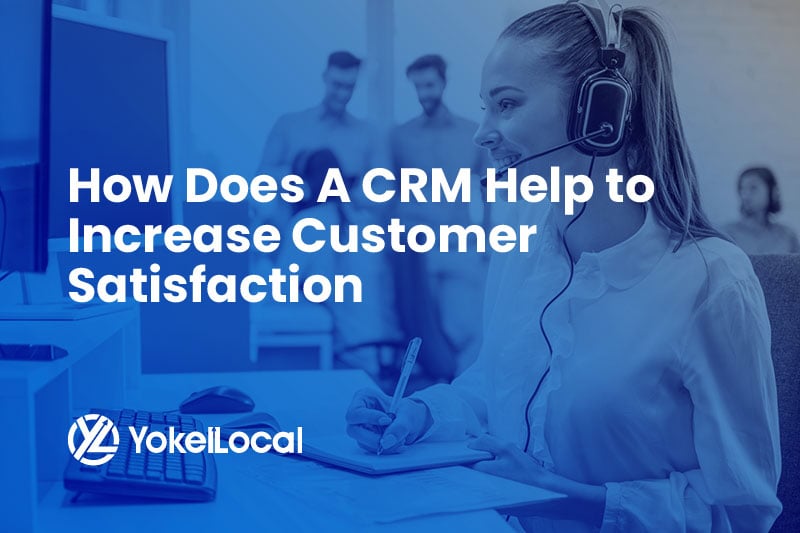Today's marketers, salespeople, and business owners must collect, organize, analyze, and utilize vast amounts of information to successfully compete in today's market. Customer relationship management (CRM) software is now available to help them do this.
Choosing the right CRM can be a challenge, but you'll find that some CRMs are better suited to certain tasks than others. Learning what each type does can help you choose the right software suite for your business's needs.
What are the Types of CRMs for Businesses?
CRMs fall into three main categories based on the type of data they collect and the tasks they can assist you with:
- Operational
- Analytical
- Collaborative
Within each category, CRMs collect, track, and use information about customers at different stages of the buyer's journey.
Most CRM types have different modules for tracking separate silos of information, such as sales automation, data management, or relationship management. Marketers often use more than one type of CRM depending on their needs.
Choose the appropriate CRM for your specific needs, as each program is optimized for a particular set of tasks. For example, an operational CRM can streamline your customer-facing interactions, but it's not very useful for strategic planning. An analytical CRM can forecast sales and build buyer personas, but it's not as useful for marketing or service automation.
Your team may need to experiment to find the CRM best suited to your workflow. Research your specific needs and the capabilities of CRMs to choose the right one.
1. What is an Operational CRM?
Operational CRMs help to manage your business's day-to-day operations, streamlining the lead generation and conversion process. They're also useful for improving your customer-facing interactions. Operational CRMs handle several broad categories of processes, including sales, marketing, and service automation. They can also be helpful for contact management and lead scoring, allowing your team to maintain relationships with customers and appropriately nurture prospects.
This type of CRM allows your team to track the life cycle of each customer and easily view every interaction they've had with your company. This allows marketers to increase the quality of customer interactions at each stage, as they'll have every piece of information about a customer readily available. This makes it easy for salespeople or marketers to pick up where the last left off in their relationship with a customer. It also opens the door to personalization tailored to where each prospect is in their buying journey.
Operational CRM features and benefits:
- Sales automation: An operational CRM can help your team better manage its leads and current customers. It standardizes interactions at each stage of a customer's life cycle. It can easily assign tasks to your sales team, preventing any from falling through the cracks. An operational CRM can also alert your team members follow-up with prospects, along with current and past customers.
- Marketing automation: An operational CRM can help you craft a campaign to nurture leads with its campaign management module. It can direct your prospects to the appropriate funnel, making the sales process swifter and more efficient. The CRM can determine which channels will be used to reach specific prospects, such as social media, e-mail, phone calls or others.
- Service automation: Operational CRMs are conducive to service automation, which can improve every facet of your customer service operations. Your team will be better able to field incoming calls and customer concerns. You'll also be able to identify and optimize areas of improvement in your processes. You can also track key performance indicators with the CRM to improve the quality of your customer service.
- Contact management: An operational CRM has powerful tools to enable contact management. It can store vital information about your customers and make it readily accessible to anyone in your business who needs it. As a result, contacts are less dependent on a single member of your team, making it easier for anyone in your business to carry on a relationship with them.
- Lead scoring: With the lead scoring capabilities of an operational CRM, your team can prioritize leads and determine the best ways to nurture them. This can help you decide which leads will be more responsive to automation or personalization. It can also give you an idea of a prospect's potential lifetime value.
Who should use an operational CRM?
An operational CRM is ideal for....
- Customer-facing salespeople and marketers who have workflows that can be automated in whole or part.
- Marketers who need to organize and easily access information about their customers. This ability is vital for lead scoring, scaling your marketing operations, and managing a growing database.
- Assigning individual tasks, which can streamline workflows for managers.
2. What is an Analytical CRM?
An analytical CRM allows you to mine, organize, and analyze data about your prospects, customers, and sales. It can provide you with granular information about prospects and customers, such as how much each individual spent.
On a macro scale, an analytical CRM may also track your customer retention rates, the length of average customer life cycles, and other organizational information. It provides the hard numbers to back up (or disprove) intuitions you or your team have about your business.
An analytical CRM can help you organize and make sense of your data, possibly revealing relationships you didn't know existed. It enables smarter, more effective marketing that delivers more value to your customers and your business. It also provides the information about your most valuable customers, helping you to focus your marketing efforts on them.
Analytical CRM features and benefits:
- Buyer persona building: Analytical CRMs are useful for data mining, which can provide you with information for building out your buyer personas. There's no limit to the potential complexity of your buyer personas, as the CRM can help you structure the data it collects. In addition to making your existing personas more robust, it may even help you discover new personas to target.
- Sales forecasting: A CRM can track seasonal fluctuations in demand or can predict if a particular item will be a hot seller with specific buyer personas. Your business can become much more flexible in meeting demand, keeping the precise amount of inventory.
- Attribution: Analytical CRMs allow you to track the touch points customers interacted with throughout their relationship with your business. This allows you to determine which ones are associated with your most valuable customers and adjust your marketing efforts accordingly.
- Data management: At its most basic level, a CRM collects and stores data about your customers and allows you to organize it in meaningful ways. While it's easy to be overwhelmed by the sheer amount of data you will collect, your CRM can make it intelligible and useful to your business.
- Purchase history: Ever wish you could track the behavior of every customer your business ever had? With an analytical CRM, you can track the lifetime value of your customers and which products appeal to each buyer persona. It can also help you identify up-selling and cross-selling opportunities.
Who should use an analytical CRM?
An analytical CRM is useful for...
- Teams that want to get a comprehensive overview of the effectiveness of their sales, marketing, and customer service efforts and make data-driven improvements to each.
- Tracking KPIs and determining areas of growth in sales and marketing. You can specify the most valuable touch points for your marketing team and which leads to focus on based on their prospective lifetime value.
- Learning more about your buyer personas.
- Gathering more hard data to make more informed business decisions.
3. What is a Collaborative CRM?
Many businesses have problems sharing data about customers between departments. A collaborative CRM is a platform designed to facilitate this exchange. It provides an overview of the full customer lifecycle, allowing each team member to add information as needed.
Collaborative CRMs have modules for building profiles of each customer based on information gathered during previous interactions with them. This profile may include the customer's goals, preferred mode of contact, and relevant documents. With this type of CRM, any stakeholder inside or outside your company that needs customer information can access it.
A collaborative CRM allows you to manage each aspect of your relationship with an existing customer. It also allows you to share information about points of friction customers experience in your process, making it more likely the problems get resolved. This CRM allows you to retain better, satisfy, and serve your existing customers, making it easier for you to attract and retain new customers in the future.
Collaborative CRM features and benefits:
- Relationship management: Helps you manger your customer/client relationships, while keeping all departments in your organization up-to-date on customers before interacting with them.
- Document management: A collaborative CRM can make documents previously submitted by your customers instantly accessible by any member of your team.
- Interactive (interaction) management: Every single interaction a customer has with your company can be documented in a collaborative CRM. This is vital for customer retention and can help you spot areas of improvement in your service process.
- Channel management: Each customer prefers to be reached over a particular channel, and a collaborative CRM can help you track this information. You'll see which channels are effective at attracting and converting leads and which aren't and can redirect your marketing resources as needed.
Who should use a collaborative CRM?
A collaborative CRM is ideal for.....
- Managers who need to better coordinate workflows between departments in their organization.
- A larger business with an established base of customers that they want to retain or contact in specific ways or connect with outside businesses. A collaborative CRM can help you harmonize customer interactions across departments, giving them a consistent experience when interacting with your company.
If you're looking for a way to build customer loyalty, improve service, and make it easier to retain new customers, a collaborative CRM could be useful to your business.
Our Pick: HubSpot's FREE CRM
Our favorite CRM is HubSpot's free CRM, which comes with robust capabilities that will help your team manage contacts, streamline the sales process, track emails, schedule meetings, and more. The HubSpot CRM is an operational, analytical, and collaborative CRM, providing a broad range of capabilities to help your business grow.
Now That You Understand the Types of CRM...
A CRM is a vital tool that can drive sales and improve customer service, retention, and efficiency in your business. It can drive down acquisition costs for new customers while increasing their value. However, a CRM is only effective as how it is used. If the one you want to use or are currently using at clashes with your existing processes, you may want to choose another.
Your business can realize significant gains almost immediately after adopting a CRM. While it's important to choose the right one, you'll face bigger problems without using one at all. If you aren't already using a CRM, this is the perfect time to start!













